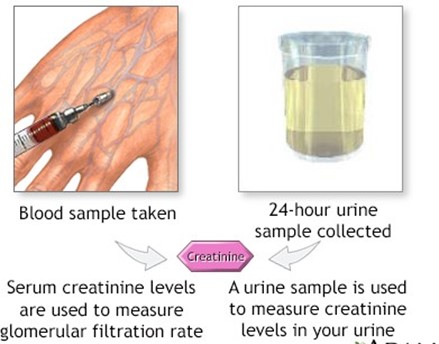A nurse is reviewing information about advance directives with a newly admitted client. Which of the following statements by the client indicates an understanding of the information?
"Advance directives include instructions for resolving financial matters after my death."
"Federal legislation dictates the legal guidelines for advance directives."
"Advance directives include a living will."
"My medical record should not include my advance directives."
The Correct Answer is C
Nursing Test Bank
Naxlex Comprehensive Predictor Exams
Related Questions
Correct Answer is D
Explanation
a.Frequent bathing can actually worsen dry, itchy skin as it can strip away the natural oils that help moisturize the skin. Instead, the nurse should encourage the client to limit bathing to shorter durations using lukewarm water and gentle, fragrance-free cleansers.
b.Powder may not provide significant relief for dry, itchy skin and can potentially irritate the skin further. It is best to focus on moisturizing and hydrating the skin to alleviate the symptoms.
c.While this might seem helpful, oils in the bath can create a slippery surface, posing a fall risk, especially for older adults. Additionally, oils might not provide sufficient hydration to the skin and could leave a residue that is not always beneficial.
d.Dry, itchy skin is a common concern among older adults, and it can be exacerbated by low humidity levels. Placing a humidifier in the client's room helps to increase the moisture content in the air, which can alleviate dryness and itchiness. The increased humidity can help prevent the skin from becoming overly dry and can provide relief from the symptoms.
Correct Answer is C
Explanation
A 24-hour creatinine clearance test is used to evaluate how well the kidneys are functioning by measuring the amount of creatinine in the blood and urine over a 24-hour period. During the test, the client is asked to discard their first-morning void and then collect all urine for the next 24 hours.
Option A is incorrect because a protein-rich diet can affect the creatinine levels in the urine, which can result in inaccurate test results. Therefore, the nurse should advise the client to avoid a protein-rich diet during the collection period.
Option B is incorrect because blood glucose levels are not relevant to a 24-hour creatinine clearance test. Therefore, the nurse should not ask the client to record their blood glucose level each time they void.
Option D is incorrect because using an antiseptic towel to cleanse the perineal area can also affect the test results by introducing contaminants into the urine sample. Therefore, the nurse should advise the client to cleanse the perineal area with soap and water or an alcohol wipe.

Whether you are a student looking to ace your exams or a practicing nurse seeking to enhance your expertise , our nursing education contents will empower you with the confidence and competence to make a difference in the lives of patients and become a respected leader in the healthcare field.
Visit Naxlex, invest in your future and unlock endless possibilities with our unparalleled nursing education contents today
Report Wrong Answer on the Current Question
Do you disagree with the answer? If yes, what is your expected answer? Explain.
Kindly be descriptive with the issue you are facing.
